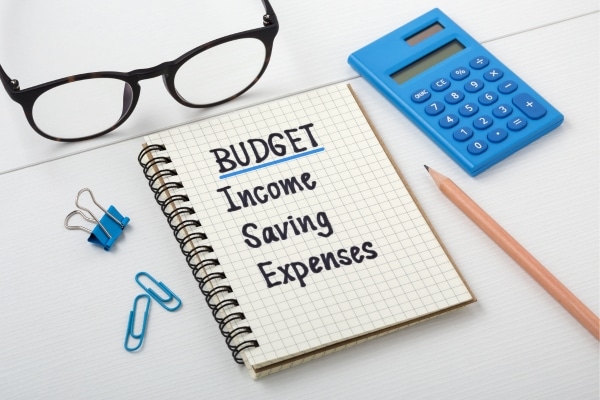Navigating the path to financial health can often seem daunting, yet it’s an essential journey for anyone looking to secure a more stable and prosperous future. This guide is designed to demystify the process of investing in your financial health, offering practical steps that can be implemented immediately. From understanding where you currently stand financially to setting tangible goals and creating a budget, this post aims to equip you with the knowledge and tools needed to make informed decisions. Tailored for the average person, the advice here is straightforward, aiming to inspire action and foster a sense of empowerment towards achieving financial wellness.
Contents
- 1 Understanding Your Current Financial Position
- 2 Setting Clear Financial Goals
- 3 Creating a Budget That Works for You
- 4 Building an Emergency Fund
- 5 Paying Down Debt Strategically
- 6 Starting to Invest Wisely
- 7 Protecting Your Financial Health
- 8 Adopting a Mindset for Success
- 9 Your Path to Financial Empowerment Begins Now
Understanding Your Current Financial Position

To embark on any journey, knowing your starting point is crucial, and the same holds true for financial health. Assessing your current financial status involves looking at your income versus your expenses, understanding your debt levels, checking your credit score, and evaluating your savings. This provides a clear picture of where you stand and highlights areas that may need immediate attention. It’s about gathering data, which forms the foundation of your financial planning.
Once you have a snapshot of your financial health, the next step is assessing your investment readiness. This means determining if you have enough savings to fall back on in case of emergencies and if your current income can support both your living expenses and potential investment ventures. Addressing debts becomes a part of this assessment, understanding their impact on your ability to save and invest. Recognizing your financial position enables you to make informed decisions about moving forward.
Setting Clear Financial Goals

Setting financial goals is akin to plotting destinations on a map; it gives direction to your financial journey. Goals should be SMART – Specific, Measurable, Achievable, Relevant, and Time-bound. This approach ensures your financial objectives are clear and attainable, whether they’re short-term goals like saving for a vacation or long-term aspirations such as securing a comfortable retirement. It’s about establishing a vision for what you want your financial future to look like.
Balancing between short-term and long-term goals ensures a holistic approach to financial planning. While short-term goals provide immediate satisfaction and milestones, long-term goals are about securing your future. For instance, while you might save for an emergency fund or a major purchase in the near term, it’s equally important to consider strategies for paying off debt and saving for retirement. Prioritizing these goals can help you manage your finances effectively, ensuring a balanced approach to achieving financial health.
Creating a Budget That Works for You

A budget is your financial blueprint; it guides your spending and saving decisions based on your income, goals, and expenses. Adopting the 50/30/20 rule can simplify budgeting – allocating 50% of your income to needs, 30% to wants, and 20% to savings or debt repayment. This method ensures a balance between fulfilling immediate needs, enjoying life’s pleasures, and building a financial cushion. A budget needs to be flexible, adjusting to changes in your financial situation without losing sight of your goals.
Technology can be a valuable ally in tracking expenses and sticking to your budget. Numerous apps and tools can categorize your spending, help you identify areas where you can cut back, and even automate savings. Adjusting your budget as your financial circumstances change is crucial; what works today may not be effective tomorrow. The essence of a reasonable budget is its adaptability and its role in facilitating financial security and freedom.
Building an Emergency Fund

An emergency fund acts as a financial safety net designed to cover unexpected expenses such as medical bills, car repairs, or sudden unemployment. The importance of this fund cannot be overstated; it’s the buffer that keeps you afloat during tough times without derailing your financial goals. Experts generally recommend saving three to six months’ worth of living expenses, but even starting small can make a significant difference. The key is consistency and gradually building this fund over time.
Deciding where to keep your emergency fund involves a balance between accessibility and earning potential. While the fund needs to be readily accessible, placing it in a high-yield savings account or a money market account can help your savings grow with minimal risk. Building an emergency fund is a step-by-step process that requires patience and discipline. By making regular contributions, even in small amounts, you can create a robust financial buffer that safeguards your financial health against life’s unpredictabilities.
Paying Down Debt Strategically

Eliminating debt is a critical step toward achieving financial freedom. The journey to becoming debt-free begins with choosing a strategy that aligns with your financial situation and goals, whether it’s the debt snowball method, which focuses on paying off debts from smallest to largest balance, or the debt avalanche method, targeting debts with the highest interest rates first. Each approach has its merits, and selecting the right one can motivate you to stay on track and witness tangible progress. It’s not just about reducing what you owe; it’s about increasing your financial security and reducing stress.
Consolidation and refinancing are tools that can potentially lower interest rates and monthly payments, making it easier to manage debt. When considering these options, it’s essential to understand the terms and how they fit into your overall debt repayment plan. Negotiating with creditors can also lead to more favorable repayment terms. Celebrating milestones as you pay down your debt not only provides motivation but also reinforces the importance of your financial goals. It’s a testament to your commitment to improving your financial health.
Starting to Invest Wisely

Investing is a powerful tool for growing your wealth and securing your financial future. The first step is understanding the different types of investments available, such as stocks, bonds, mutual funds, and ETFs, and how they fit into your overall financial plan. It’s essential to assess your risk tolerance and investment goals, as these will guide your investment choices. The world of investing offers vast opportunities but requires a cautious approach to navigate successfully. It’s about making your money work for you and maximizing returns while managing risk.
Diversification is a key principle of investing wisely; it involves spreading your investments across various asset classes to reduce risk. Additionally, understanding the importance of retirement accounts like IRAs and 401(k)s can provide tax advantages and a structured way to save for the future. Selecting the right investment platform is crucial, whether you prefer a hands-on approach with a brokerage account or the automated convenience of a robo-advisor. The goal is to create a balanced and diversified investment portfolio that grows over time, aligning with your financial goals and risk tolerance.
Protecting Your Financial Health

Insurance and estate planning are essential components of a comprehensive financial plan, offering protection against unforeseen events and ensuring your assets are distributed according to your wishes. Different types of insurance, such as health, life, disability, and property insurance, provide a safety net for you and your loved ones. Estate planning, including the creation of a will or trust, is not just for the wealthy; it’s a crucial step for anyone who wants to control the distribution of their assets and minimize the burden on their family.
Safeguarding your personal and financial information is more important than ever in the digital age. Taking steps to protect against identity theft, such as monitoring your credit reports and using secure passwords, can prevent financial loss and stress. Building a financial support network of trusted advisors can provide valuable guidance and support. Regular financial check-ups, much like health check-ups, are vital to ensure your financial plan remains aligned with your goals and adapts to any changes in your life or the financial landscape.
Adopting a Mindset for Success

A healthy financial future is as much about mindset as it is about action. Cultivating financial literacy by continuously educating yourself on financial matters can empower you to make informed decisions. This journey requires patience and discipline, particularly when faced with market volatility or personal financial challenges. Learning from mistakes and viewing setbacks as opportunities for growth can strengthen your financial resolve and adaptability.
The importance of community and seeking support from like-minded individuals cannot be overstated. Whether through online forums, financial literacy workshops, or local investment clubs, connecting with others who share your financial goals can provide motivation, new insights, and valuable advice. Staying adaptable and open to adjusting your financial plan as your life circumstances change ensures that your financial strategy remains relevant and effective. The path to financial well-being is ongoing, requiring commitment, adaptability, and a positive outlook.
Your Path to Financial Empowerment Begins Now
Beginning the journey to invest in your financial health is a step toward securing a more prosperous future. With dedication to understanding your finances, setting clear goals, and adopting strategic measures to grow and protect your wealth, you’re laying down the foundation for lasting financial well-being. Embrace the process with patience and discipline, and remember that every small step forward is progress. Your financial journey is unique and armed with the right knowledge and tools, you’re well-equipped to navigate it successfully.